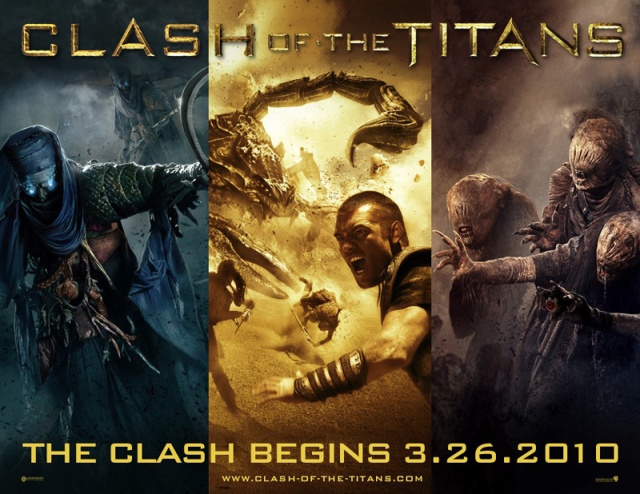Clash of the Titans is a cheesy action movie. Even someone who is a huge fan of mythology would be disappointed with the liberties that director Louis Leterrier takes in constructing the story of Perseus. 
It was heavily adapted to please the shallow thrills of action-movie junkies.
Having voiced my opinions about the plot, the special effects and visual experience of seeing the movie were outstanding. The mythological creatures like Medusa and the Pegasus seemed to be real. Even the depiction of Mt. Olympus was feasible, considering the difficulty of imagining a city in the sky.
My criticism of the cinematography lies in the action sequences—they were so fast-paced that everything seemed to blur together. Watching the movie in 3-D, it was difficult to appreciate the details at such a quick pace.
Perseus (Sam Worthington) is the son of Zeus (Liam Neeson) and Danae (Tine Stapelfeldt). He is a demi-god even though he spends his life fishing with his adoptive parents. He is aimed against the gods after his adoptive parents and siblings were killed by Hades (Ralph Fiennes). As a result of their death, Perseus is motivated to defy the Gods, even Zeus, his real father.
Perseus does not know that he is a demi-god until Hades visits the city of Argos, threatening to destroy it. Hades demands the sacrifice of Andromeda (Alexa Davalos), Argos’ princess, to prevent the wrath of the Kraken from destroying Argos. Hades created and controls the Kraken that destroyed the Titans, who ruled before he, Poseidon, and Zeus came to power.
Perseus’ mission is to destroy Hades, the god of the underworld, the god who killed his family. But to banish Hades back to the underworld, he must first defeat the Kraken.
The key to defeating the Kraken is acquiring the head of Medusa. Any being that gazes into her eyes is turned to stone immediately. However, Medusa’s lair lies within the underworld. Almost all of Perseus’ companions die in the underworld, but it is not their fate to save the city of Argos.
Zeus may give Perseus the tools, but Perseus does all the work. Zeus continues to learn that he must rely on the love of his creations, not their fear.

